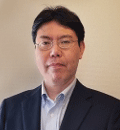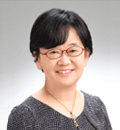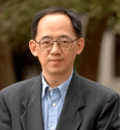Plenary Speakers
May 3, 2024

Quantum information technologies using photons -entangled photon sources, single light emitters, and their applications -
Professor
Graduate School of Engineering Division of Electronic Science and Engineering
Kyoto University
http://qip.kuee.kyoto-u.ac.jp/en/member.html
The rapid development of quantum mechanics in the 1920s is called the quantum revolution. Recently, research on “quantum technology” that overcomes the limits of existing technology by utilizing the essential properties of quantum mechanics is progressing rapidly and is also called the “second quantum revolution.” Applications of quantum technologies to sensing and measurement, which are the foundations of various science and technology, are also highly expected. Quantum entanglement is a superposition of `different correlated states’ and is a crucial resource for quantum technologies.
In this talk, we will report our recent progress in developing novel quantum entangled-photon sources, single light emitters, and applications to quantum sensing, particularly infrared quantum absorption spectroscopy. Harnessing the quantum interference between generation processes of visible-infrared photon pairs, infrared quantum absorption spectroscopy (QIRS) enables the estimation of the optical properties of a medium in the infrared region from interferograms obtained by detecting visible photons. Since QIRS enables infrared spectroscopy using a light source or detector for the visible wavelength region like silicon CMOS sensors, infrared spectrometers can be made more compact and less invasive, which will find many alternative applications.
May 4, 2024

Molecular Tips for AFM-Based Force Spectroscopy and Nano Lithography
Prof. Dr. Yoko Yamakoshi
Professor/Department of Chemistry and Applied Biosciences
ETH (Swiss Federal Institute of Technology) Zürich
https://www.yamakoshi.ethz.ch/
To analyze and manipulate the surface substrate at a single molecular level and in a reproducible manner, tripod-shaped organic molecules, with a tetrahedral adamantane core and rigid acetylene legs were synthesized. It was expected that such tripod structure with wider platform may help the robust attachment of the organic molecule onto the AFM tip surface in a dispersed manner being advantageous for the single molecular study. The molecules were stably immobilized onto the gold surface by S-Au bonding as observed by NC-AFM imaging. For chemical recognition of the substrate surface, tripod with ligand moieties were subjected to the Au-coated AFM tip functionalization to observe single molecular interaction between the ligand and receptor with precise magnitude and reproducibility. When a tripod molecule with photocatalyst C60 was attached onto the AFM tip, localized oxidation of the substrate DNA origami was successfully performed under the temporal control of visible light irradiation that triggered the reactive oxygen species generation by C60 on AFM tip.
Yoko Yamakoshi obtained her B.S. and M.S. from Ochanomizu University and Ph.D. from the University of Tokyo (supervisor: Prof. Tetsuo Nagano). Subsequently, she was a postdoctoral researcher in the laboratory of Prof. François Diederich at ETH Zürich (JST overseas fellowship). She was a tenured Research Chemist in the National Institute of Health Sciences (Japan) from 1991-2001 and a Senior Research Chemist in 2002-2003 in the same institute. She moved to the USA to work as an Associate Researcher in UC Santa Barbara (2004-2007) and as an Assistant Professor in University of Pennsylvania (2007-2010) before returning back to ETH. Since 2014, she is entitled as a Professor in Department of Chemistry and Applied Biosciences in ETH Zürich.
May 5, 2024

Leveraging Semiconductor Eco-systems to MEMS
Prof. Weileun Fang
NTHU Chair Professor/Power Mech. Eng. Department
National Tsing Hua University, Taiwan
http://mdl.pme.nthu.edu.tw/NTHU_PME_lab_ENG/mem.html
Taiwan, with population of near 23 million and area of 36000km2, is active in the semiconductor related industries and researches, especially in Hsinchu city where the National Tsing Hua University (NTHU) is located. The faculties and students of NTHU have the opportunity to frequently and closely interact with the semiconductor industries. This article would like to share the experience of NTHU MEMS group regarding how they leverage the huge semiconductor resources to promote MEMS technologies in the following four stages. First, employing the CMOS-MEMS technologies serves as the bridge to communicate with the semiconductor industries. Second, by preventing various mechanical issues from thin films, promising applications for CMOS-MEMS technologies are demonstrated. Third, the MEMS above CMOS technology established in the foundry further exhibits the win-win collaboration for MEMS and semiconductor technologies. Finally, due to the potential applications in Smart-X and Metaverse, semiconductor industries are even developing processes with new functional materials for MEMS recently. In conclusions, it is a win-win strategy between academia/research and industry/market to leverage the resources in mature semiconductor ecosystems for the development and commercialization of MEMS.
Prof. Fang has been working in the MEMS field for more than 20 years. He received his Ph.D. degree from Carnegie Mellon University (Pittsburgh, PA) in 1995. He joined the National Tsing Hua University (Taiwan) in 1996, where he is now a Chair Professor. He became the IEEE Fellow in 2015 to recognize his contribution in MEMS area. Prof. Fang has published ~500 refereed papers and granted ~120 patents. He is now the Chief Editor of JMM, the Board Member of IEEE TDMR and Sensors and Materials, and the Associate Editor of IEEE Sensors J. He served as the General Chair or Program Chair for many important international conferences: the World Micromachine Summit 2012, IEEE Sensors 2012, and Transducers 2017. He also served as the chair of International Steering Committee of Transducers during 2017-2019. Moreover, he served as the Technical Program committee of IEEE MEMS and Transducers for many years. So far more than 50 PhD and 70 Master students have graduated from Prof. Fang’s group. Most of them are working in the MEMS and micro sensors related companies. Thus, Prof. Fang has close relation with MEMS industries, and is now the Vice Chair of MEMS and Sensors Committee of SEMI Taiwan.
